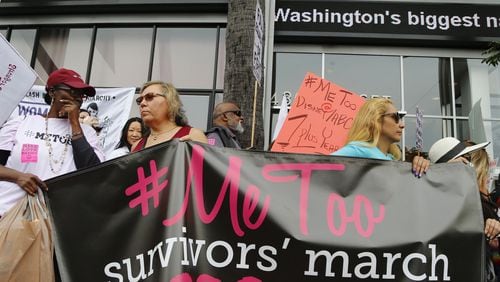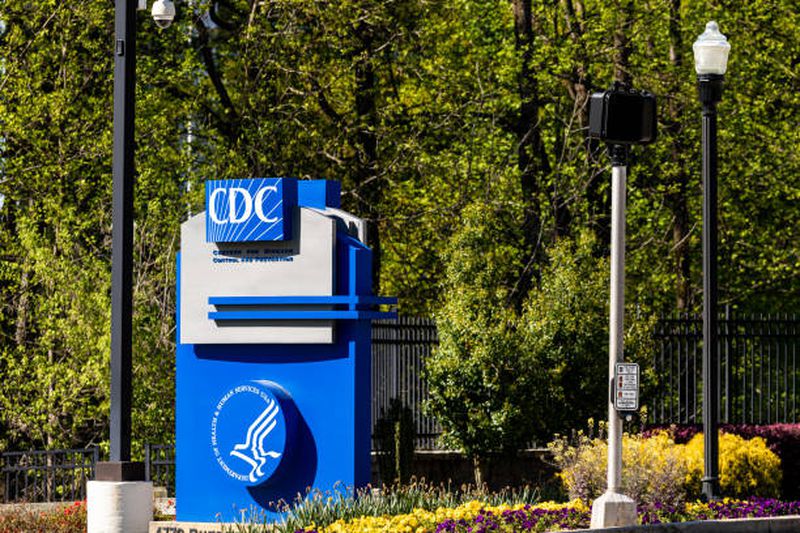An executive order by President Trump designed to prevent white people from feeling uncomfortable during workplace racial sensitivity classes could also hamper employers' ability to stave off sexual harassment lawsuits, opponents of the order say.
Taking a cue from a Fox News segment, last month Trump cracked down on federally funded employers pushing beliefs that “America is an irredeemably racist and sexist country” and “that some people, simply on account of their race or sex, are oppressors.” The president has said he was rankled by taxpayer dollars being used to promote critical race theory, a school of thought that racism runs deep in the American legal system and its institutions.
His broadly worded order, however, appears to forbid any training that could cause a white male to think he bears responsibility for past oppression or that he may be unconsciously racist or sexist.
“I think that that would absolutely incorporate sexual harassment training," said Jin Hee Lee, senior deputy director of litigation for the NAACP Legal Defense and Educational Fund, “to the extent that an employer is trying to educate its workforce in terms of the conditions that give rise to sexual harassment, and the history of sexual harassment in the workplace, or the continuing entrenched discrimination against women, and stereotypes about women that can facilitate sexual harassment.”
This puts employers in a difficult position, because if they don’t educate workers about what’s inappropriate, they can be held legally liable for harm done to victims, one of the lead attorneys for the legal defense fund said at a Zoom news conference Thursday. The fund, along with two other plaintiffs, has filed a class-action lawsuit seeking to overturn the Sept. 22 order.
The order, titled “Combating Race and Sex Stereotyping,” applies to contractors, subcontractors and academic institutions that receive federal funds, as well as federal government agencies and the military. For federal agencies, it took effect immediately. Private companies fall under the order if they sign any contracts starting Nov. 21.
Lorene Schaefer, an Atlanta attorney who conducts diversity training for federal agencies, state and local governments and federal contractors, said the order could affect sexual harassment training tailored to specific corporate cultures, as opposed to more standard “off the shelf” training. So far, she said, no one has canceled any scheduled training with her.
“The problem with the executive order is that it’s so darn ambiguous, no one knows what it means,” Schaefer, CEO of Win-Win Resolve, said.
As a result, the order has sown confusion — and fear. Trump ordered the U.S. Labor Department to set up a hotline to receive complaints about non-compliance, threatening offenders with investigations, loss of funding and permanent banishment from contracting programs.
Across the nation, universities and private employers have reportedly canceled Hispanic heritage and LGBTQI pride events, as well as diversity training set up after the death of George Floyd.
Columbia Law School’s African American Policy Forum has been conducting an informal survey trying to gauge the immediate impact of Trump’s order. One anonymous response came from an employee of a Georgia K-12 school system.
“Several of our contracts and workshops are on hold, canceled, or just in limbo,” the respondent said, according to notes provided by policy forum senior fellow Kevin Minofu. “There is a hotline where people can report trainings that would put the organizer of the training in trouble. Our last session ended up talking about trauma instead of racial trauma.”
Meanwhile, the University System of Georgia has sent guidance to the heads its 26 schools telling them to take stock of their federal contracts and federal grants, and if they fall under the order, ensure workplace training doesn’t violate Trump’s order.
“If you learn that your institution has received a (Department of Labor) hotline complaint under this executive order, please inform your legal counsel and the USG Office of Legal Affairs immediately,” the guidance says.
In Atlanta, the White House shut down a training course at the Centers for Disease Control and Prevention called “Naming, Measuring, and Addressing the Impacts of Racism on the Health and Well-Being of the Nation and the World,” which among other things examined how COVID-19 has disproportionately wreaked havoc on Black communities.
The CDC has been ordered not to discuss the canceling of the program, or the potential canceling of any other training, by its umbrella agency the U.S. Department of Health & Human Services.
Trump’s executive order would also presumably apply to Georgia government departments that receive federal funds, such as transportation, public health and human services. Gov. Brian Kemp mandated annual sexual harassment prevention training for all state employees last year as part of reforms he enacted following an Atlanta Journal-Constitution investigation that exposed how the state’s haphazard response to complaints created toxic environments and made reporting risky for employees.
In a written statement, the state Department of Administrative Services, which administers the training, told the AJC the materials are “race and gender neutral,” adding, “The executive order issued by President Trump is unrelated to the state of Georgia’s sexual harassment program, which does not include diversity training.”









